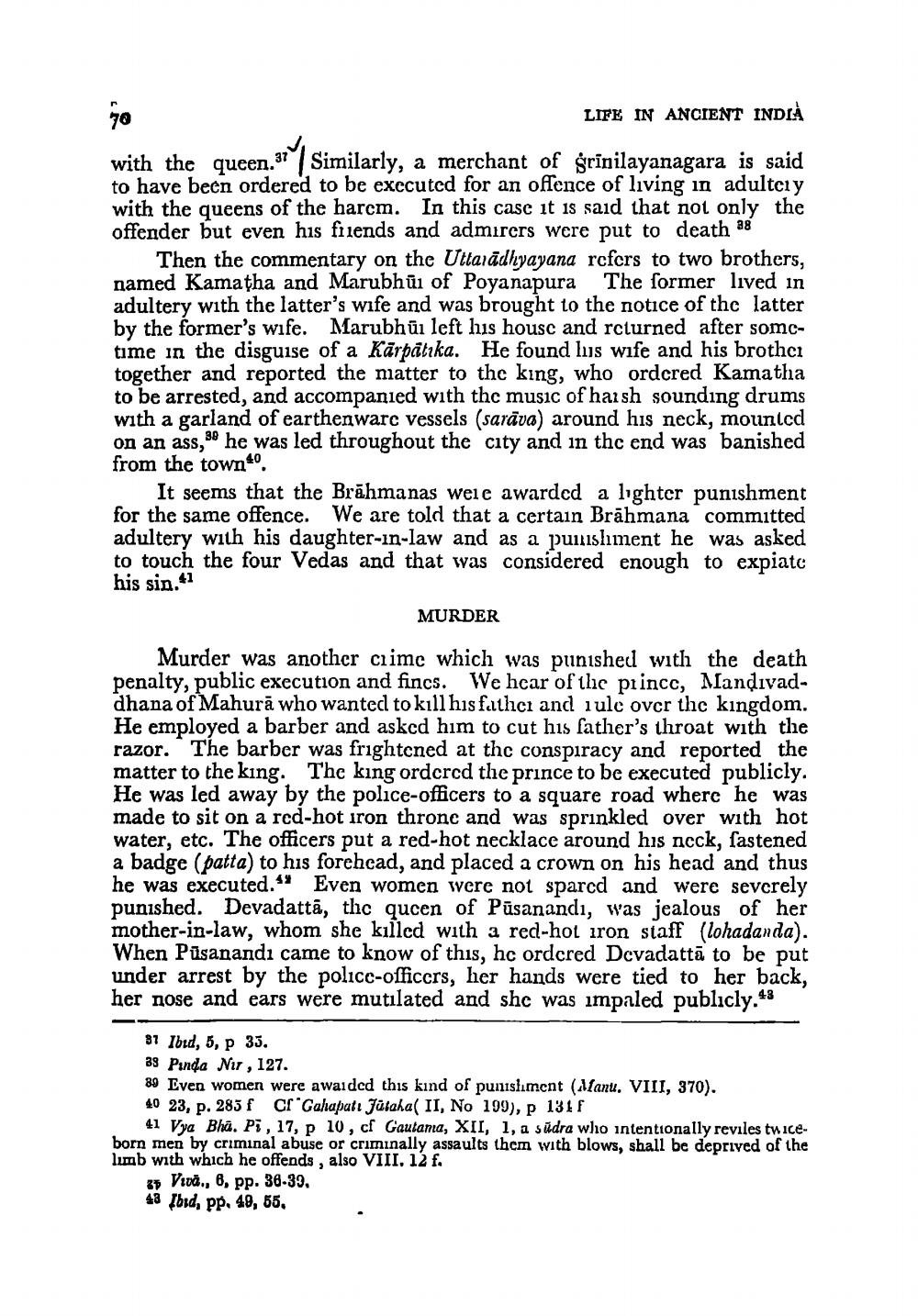________________
LIFE IN ANCIENT INDIA
with the queen.37 Similarly, a merchant of grīnilayanagara is said to have been ordered to be exccuted for an offence of living in adultcı y with the queens of the harcm. In this case it is said that not only the offender but even his friends and admirers were put to death 28
Then the commentary on the Uttarādhyayana refers to two brothers, named Kamatha and Marubhūi of Poyanapura The former lived in adultery with the latter's wife and was brought to the notice of the latter by the former's wife. Marubhūi left his housc and rcturned after somctime in the disguise of a Kárpátrka. He found his wife and his brother together and reported the matter to the king, who ordered Kamatha to be arrested, and accompanied with the music of harsh sounding drums with a garland of earthenwarc vessels sarāva) around his neck, mounted on an ass, so he was led throughout the city and in thc end was banished from the town.
It seems that the Brāhmanas were awarded a lighter punishment for the same offence. We are told that a certain Brāhmana committed adultery with his daughter-in-law and as a punishment he was asked to touch the four Vedas and that was considered enough to expiato his sin.41
MURDER
Murder was another crime which was punished with the death penalty, public execution and fincs. We hear of the princc, Mandivaddhana of Mahurā who wanted to kill his father and iulc over the kingdom. He employed a barber and asked him to cut his father's throat with the razor. The barber was frightened at the conspiracy and reported the matter to the king. The king ordered the prince to be executed publicly. He was led away by the police-officers to a square road where he was made to sit on a red-hot iron thronc and was sprinkled over with hot water, etc. The officers put a red-hot necklace around his neck, fastened a badge (patta) to his forehcad, and placed a crown on his head and thus he was executed." Even women were not spared and were severely punished. Devadattā, thc qucen of Pūsanandi, was jealous of her mother-in-law, whom she killed with a red-hot iron staff (lohadanda). When Püsanandi came to know of this, he ordered Devadattā to be put under arrest by the policc-officers, her hands were tied to her back, her nose and ears were mutilated and she was impaled publicly. 48
87 Ibid, 5, p 33. 39 Pinda Nur, 127. 89 Even women were awarded this kind of punishment (Manu. VIII, 370). 40 23, p. 285 f crGahapalı Jütaha( II, No 199), p 1311
41 Vya Bha. Pi, 17, p 10, cf Gautama, XII, 1, a sūdra who intentionally reviles twiceborn men by criminal abuse or criminally assaults them with blows, shall be deprived of the lumb with which he offends, also VIII. 12 f.
37 Viva., 6, pp. 36-39. 48 Ibid, pp. 49, 55,




